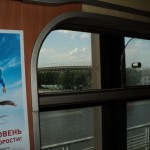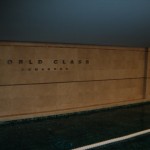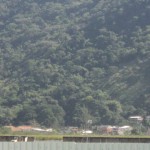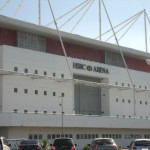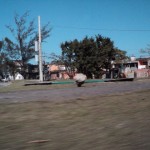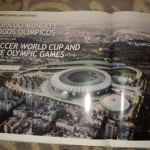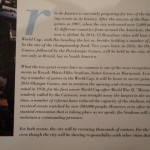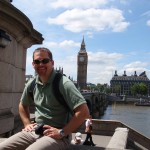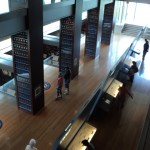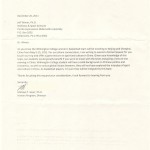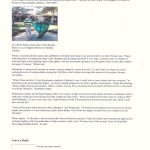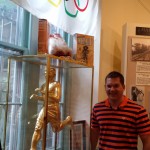 Few events have the power to generate worldwide interest like the Olympics. Designed to bring nations together as a symbol of unity, the Olympic spirit is a captivating ideal. But well beyond the opening ceremonies and lighting of the flame there are important issues such as Human Rights violations and Public Health concerns that many people who watch the Games may never fully realize unless attention is drawn to them.
Few events have the power to generate worldwide interest like the Olympics. Designed to bring nations together as a symbol of unity, the Olympic spirit is a captivating ideal. But well beyond the opening ceremonies and lighting of the flame there are important issues such as Human Rights violations and Public Health concerns that many people who watch the Games may never fully realize unless attention is drawn to them.
I have been studying the Olympic movement for decades first becoming fascinated by the Olympic ideal when I was a small boy sitting at my parents kitchen table eating the “Breakfast of Champions” Wheaties cereal. At their table, I would peer ever so intently at the details of the cereal box featuring Bruce Jenner, the 1976 Summer Olympics gold medal winner in the decathlon, and dream about winning the gold.
As a boy on Saturday mornings, I watched with a piqued interest the animated cartoon program called “Scooby’s All-Star Laff-a-Lympics,” which featured the popular Hanna-Barbera characters competing in Olympic type sports in different locations around the world in a format similar to an Olympic television broadcast, (complete with cartoon hosts and color commentary).
A few years later, I was mesmerized (much like most of the nation) by the “Miracle on Ice” watching the US Ice Hockey team defeat the Soviets on my 12 inch Black and White TV set in my bedroom. In the next game against Finland, which was to be broadcast on a Sunday morning, (at a time long before the VCR), I had convinced my parents that I could not go to church services that particular morning for fear of missing the US winning the gold. My parents agreed, and the memory of watching the heavily underdog US win the game resonates with me as if it had occurred just yesterday. Although, a mere few months later my heart was broken when I failed to completely understand why our team, the USA, was not allowed to participate in the summer Games because of a new word I was learning. The word was called “boycott,” and it would shape my interest in the Olympics, and the politics that encompass the Games to this day.
As I grew older and went off to college, one of my favorite memories during those early undergraduate years was playing a coin-operated arcade game in the college’s Student Union called bubble hockey. The game was called bubble hockey because of the large plastic bubble that covered the table similar in style to a Foosball table that the players control with long rods. One of my most favorite memories was pressing the “boo button” that simulated the sounds made by disapproving fans sitting in the bleacher seating. The bubble hockey game featured the USA versus the all red CCCP team from the Soviet Union, just like the teams who played in the infamous the 1980 winter Olympics game.
During 1988 Olympics, I followed closely the Ben Johnson vs Carl Lewis saga. Being an Athletic Training major in college, my classmates and I had studied anabolic steroids, and even attended a special lecture in which the keynote speaker actually hypothesized that anabolic steroids did not improve performance (it was a prevention strategy at the time, and a bad one at that). Johnson had set a new world record in the 100 meters, but three days later, Johnson tested positive for steroids, and his medal was taken away and Lewis was awarded gold and credited with a new Olympic record.
In the early and mid 90’s I continued to follow the Olympics and such memorable moments as Kerri Strug triumph landing despite having a serious ankle injury, and ensuring that the US team would win its first gold ever in women’s gymnastics. Sadly, the games were overshadowed by the the bombing in Centennial Park at those summer 1996 Atlanta Olympics.
One of my first professional publications was an article appearing in the Journal of Emergency Care, Rescue and Transport. In my article, I framed the backdrop of the 1994 Winter Games and the media frenzy over the Tonya Harding-Nancy Kerrigan ice skating scandal to discuss sport injury care. More recently, my work in this area has shifted to Human Rights and violations that occur when a city hosts the Games. I have also investigated the Public Health legacies in cities that hold the Olympics.
In 2012, nearly 235 media outlets, including 8 international sites in 5 countries carried headlines about my research efforts and initial findings. These media outlets included 166 Broadcast Media Stations, 9 News and Information Services, 43 Newspapers, and 6 Trade Publications. The international news sites included 2 in Canada, 1 in Denmark, 1 in France, 1 in Germany, and 3 in India. Click here to see the complete list: International and National coverage listing.PDF
I was also interviewed on the radio about this ongoing research, which has aired on at least 4 different radio stations in 3 different cities to my knowledge.
My interview with Noah Brode of Essential Public Radio, WESA 90.5FM in Pittsburgh, PA aired Monday August 6, 2012 on the evening program and again Tuesday August 7, 2012 on the morning program. Click here read a published summary titled Study to Examine Long-Term Health Effects of Hosting the Olympics: Published on Essential Public Radio or click here http://wesa.fm/2012/08/06/study-examine-long-term-health-effects-hosting-olympics
In a different interview with Matt Paul of Radio PA Weekly Roundtable–a 30-minute program featuring in-depth reporting on the top news stories of the week– I discuss discuss what happens to new stadiums and the athletes’ village after the Olympic games are over. The radio segment from August 10, 2012 was sent to several affiliates to air. Radio PA Roundtable summary.PDF
About two weeks following my interview on Essential Public Radio, Craig Layne host/reporter of WITF’s Morning Edition aired a segment on Wednesday August 22, 2012 on two different radio stations WITF 89.5FM in Harrisburg, PA and WYPM 93.3 FM in Chambersburg. Click here to read the synopsis of the interview titled Midstate professor looking at impact of Olympics on host city neighborhoods: WITF FM radio interview.PDF or click here http://www.witf.org/regional-a-state-news/midstate-professor-looking-at-impact-of-olympics-on-host-city-neighborhoods
My research was also summarized into newspaper articles appearing in at least two newspapers: 1). The Intelligencer Journal/New Era (Lancaster, PA) on August 23, 2012 titled: Millersville Professor Examines Public Health Legacy of Hosting Olympics: Click to open: Intelligencer Journal.PDF and 2). The York Daily Record (York, PA) special-feature section called the O-Zone (with the letter O for Olympics). The York Daily Record article was written by Angie Mason and titled: Millersville Professor Researching the Impact of Living Near an Olympic Venue and appeared on August 7, 2012. Click to open: York Daily Record.PDF
On October 18, 2012, I received an e-mail inquiry from a senior writer at PolitiFact—an organization that fact-checks statements in politics and then publishes their evaluations on the PolitiFact.com website. The reporter’s question was whether Governor Mitt Romney was being accurate when he said he balanced the budget for the 2002 Winter Olympics. The reporter wanted me to clarify if the various budgets used for hosting the Olympic Games had included funds from other major capital investments undertaken by the federal, state and local city government entities. Unfortunately, my research has not included Salt Lake City so I could not answer his question. However, his query provides another example of the far researching influence this research has had. Politi-fact check on Salt Lake City Olympics.PDF
On January 21, 2014, I gave an interview to the NBC affiliate in Lancaster, PA (WGAL-TV8) with my colleague Dr. Ying Wushanley from my department, who has published articles about the Olympics. Additionally, the MU public relations department interviewed Dr. Wushanely and me for an article appearing in the Millersville University Exchange titled: Watching the Olympics from MU.pdf
On February 6, 2014, my interview with Dr. Wushanley was published in the Lancaster New Era newspaper on page A7 under the title “MU Professors Keep Watch on Impact of Olympics, http://lancasteronline.com/lifestyle/mu-professors-keep-watch-on-impact-of-olympics/article_987beafa-8eab-11e3-83cf-0017a43b2370.html
Our comments were also picked up by another 258 media outlets which included several international publications: PR Newswire weblink report.pdf
Shown below are a few of my data sources for ongoing research such as 1) an newspaper article published in Russia describing post-Olympic sites of 1980 appearing in the Moscow Times June 4, 2012.PDF. 2) an endorsement letter/e-mail in Russian allowing me to conduct research at the premier fitness club in Moscow. 3) field notes and photo outside Madonna’s Hard Candy fitness club in Moscow including a following-up e-mail from the sales director. The musician Madonna has opened several fitness centers around the world, and in 2014 partnered with members of the all-female band in Russia who were jailed for their outspoken comments negative of the President.
Also below are various photographs documenting some of the sites where I have studied as well as photos and notes from the Clinton Presidential Library in Little Rock. President Clinton was in office during the 1996 Atlanta Olympics, and opened those Games.
- With Dr. Wushanley
- TV interview
- Dr. Wushanley
- Mauch Chunk mueso


















